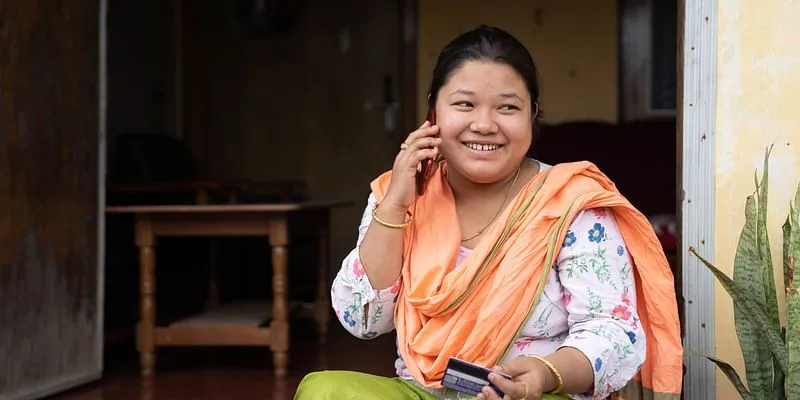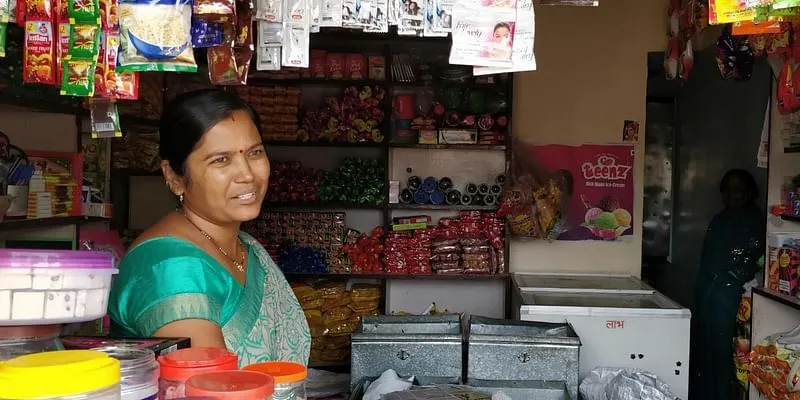Trust can conquer the final frontier in digitisation where women merchants can lead it
To build this trust among women merchants, the government and the industry are bringing think tanks, civil society, and community networks to the table.
Building trust in digital payments is crucial to unlocking the potential of women merchants in India.
The government is taking important steps to include diverse voices of think tanks, civil society, and community networks to understand the gaps in digitisation in rural areas to strengthen the delivery and accountability framework for responsible digital payments, with greater emphasis on individual control and value.
This is important for two reasons: the sheer volume of direct benefit transfers that pass through the growing digital payments infrastructure — getting it right for everyone is crucial. Secondly, emerging areas of data privacy, digital governance, and consent frameworks are nascent and complex and require new frameworks that address socio-technical dimensions to build trust and adoption.
We are reminded every day by experiences of women merchants that digital payments are not asexual, and to include women, we need to design for both men and women.
By working with leading thinkers of the country, we fully grasp the unique and different challenges of diverse geographies and communities, especially women merchants.

Photo: UN Better Than Cash Alliance
In June this year, the Department of Economic Affairs hosted a discussion with FICCI, the United Nations-based Better Than Cash Alliance, and 16 leaders from the civil society, women collectives, and tech policy think tanks to discuss how women merchants are engaging with digital payments to inform policymaking and fintech practices in rural and remote areas.
Affordable mobile data, public digital infrastructure, and entrepreneurial innovations have increased the quantum of digital payments.
However, there are several barriers: lack of local language content, low internet access among women, low confidence in online payments, and lack of customised products.
Some important steps were suggested to build trust:
Firstly, including diverse voices to identify systemic exclusion to advance India’s understanding of the complex issues.
Here, think tanks could play a role in contributing to long-term thinking in nascent digital sectors’ interaction with the last mile. The challenges for merchants, especially women at the last mile, are deep-rooted, pervasive, and interconnected.
For example, a merchant incentive scheme can cause anxiety in rural India due to frequent changes, and therefore, should be re-designed to incentivise merchants.
Another example we heard from the rural leaders is that to become a last-mile cash-in cash-out point, sometimes a capital requirement of up to Rs 1 lakh is needed.
With a majority of the transactions being micro, redefining this criterion or designing partnerships to provide capital support or guarantees could be an important step. Diverse voices that seek to provide greater agency for the last mile and, in turn, build strong and responsive institutions to support them are important outcomes for the government.
The government recognises women merchants in rural India as an indispensable part of the country’s remarkable growth. These women merchants, unaccounted for in national datasets on merchants, often share mobile phones and rely on their social networks to meet the requirements to digitise payments — as a business correspondent (BC), an ecommerce seller, a kirana shop owner, and other consumer-facing roles.
The 12 million kirana stores employ 45 million people and account for 95 percent of the country’s Rs 35 trillion market for food and grocery. However, only 2 percent of the kirana stores have been digitised so far. The rate is much lower for women and rural merchants.

Secondly, deeper engagement with industry to prioritise actions and commitments to solve for systemic exclusion. For example, earlier this year, the government bought together state governments and eight different stakeholder groups to identify concrete actions to ensure fairness is systematically embedded in merchant digitisation.
It also created a roadmap for new and creative partnerships to build the last mile local digital ecosystems. One notable commitment is by MeitY to leverage the National Language Translation Mission to disseminate digital payments information, privacy clauses, and consent in local languages for trust and empowerment.
We can develop a common understanding among stakeholders regarding trust and equity in the system by embracing the UN Principles for Responsible Digital Payments — a comprehensive set of principles and actions launching later this year, to which India contributed.
These include fair treatment of clients, security of data, ensuring funds are safe and easy to use, transparency (especially on pricing), catering to individual needs and capabilities, interoperability, accountability, and prioritisation of women.
Paradoxically, while fintech and digital payments are growing in leaps and bounds, rural India is still a cash-based economy. There are many reasons for this, most importantly, the trust deficit.
People don’t necessarily trust an interface written in English. Horrific experiences of visiting bank branches 30 km away to reverse a failed transaction have spread fear and mistrust fast among customers. And for many, good internet connectivity is not guaranteed to properly make use of an online-first designed solution.
Thirdly, fintechs can partner with community organisations and civil society leaders who are advocates for the excluded and underserved to co-create solutions together.
We must also build on the excellent evidence and knowledge created by leading privacy advocates and think tanks that have focused on public opinion and citizenry participation to continue the feedback process in digital solutions at the last mile.
We know that India’s digital foundation is strong, and by building greater alliances and integration between the digital ecosystem and social infrastructure of the country, we can create the space for dialogue and seek feedback.
Responsible implementation of digital payments will need to build greater safeguards, ensure privacy, access, and create a framework for the financial technology ecosystem to address the barriers. This will go a long way in removing the trust deficit and serving women merchants at the last mile.
All the factors are perfectly aligned for us to embark on a journey of responsible merchant digitisation to achieve financial equality for women.
As seen in the challenges above, there is work to be done to propel us on the road ahead. But we, as a country and economy, are on our way.
Edited by Suman Singh
(Disclaimer: The views and opinions expressed in this article are those of the author and do not necessarily reflect the views of YourStory.)










